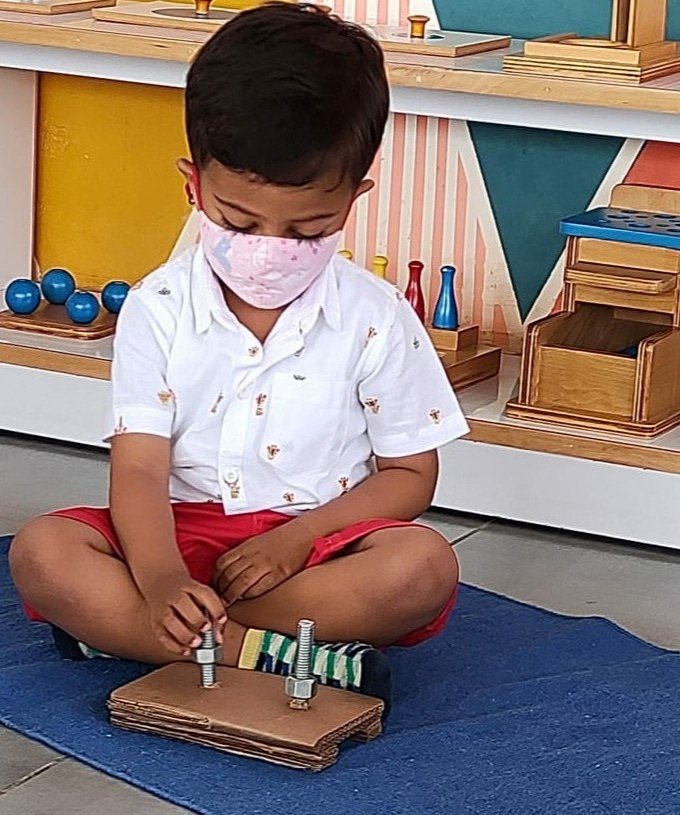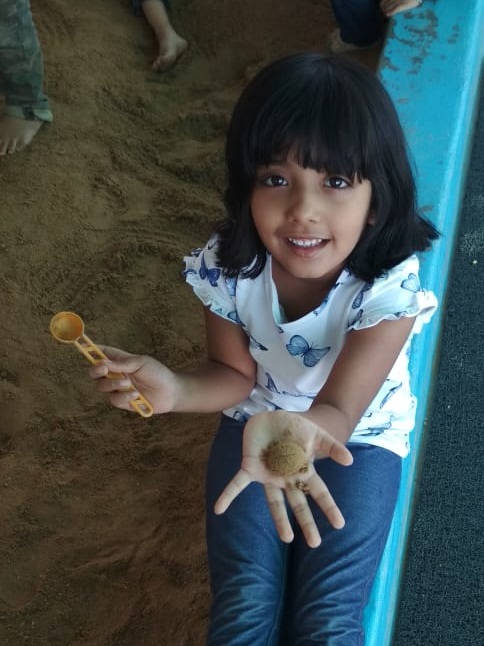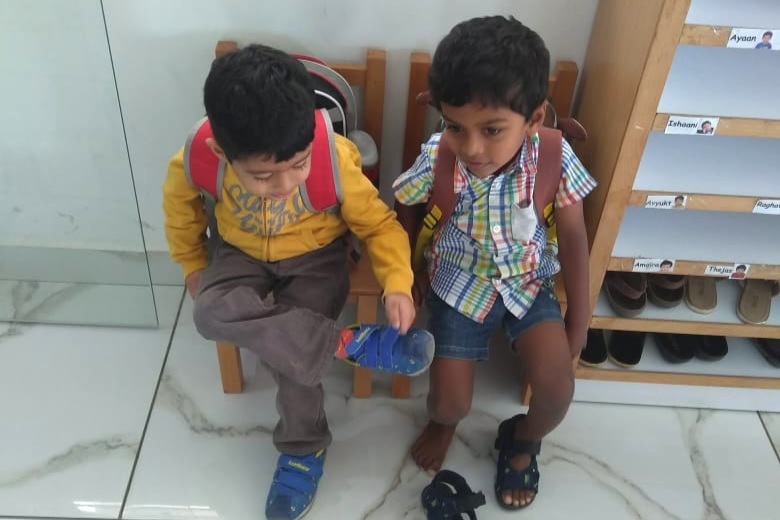“Let us leave the life free to develop within the limits of the good, and let us observe this inner life developing. This is the whole of our mission.” – Maria Montessori
Montessori encourages freedom within limits through the design of the prepared environment. Dr. Montessori gave a lot of importance to freedom in the classroom. She makes a powerful argument that the roots of tyranny are in adults forcing children to obey their commands. When a child spends his entire day, year after year, following the instruction of adults and has no right to follow his own interests, he may come to believe that his own interests are unimportant. He may come to believe that his thoughts are not as important as the thoughts of the adults who are teaching him.
Montessori believed in discipline. But she realized that the way to reach it was by creating environments where children found engaging materials to use. When they are fully engaged in the work that appeals to them at their particular level of development, they become self-disciplined. You see in Montessori classrooms a group of three-, four- and five-year-old’s hard at work. No teacher could command such discipline, yet the children freely give it to their own self-chosen work.
Freedom of choice becomes a habit of mind. Freedom to explore your own thoughts and interests can open the floodgates to creativity, as it has with such Montessori alumni as the co-founders of Google, Wikipedia and Amazon.com – all Montessori graduates.
At @pepschoolv2, we understand all these learning differences and created an environment for children where they come in each day and choose what they want to work on.























